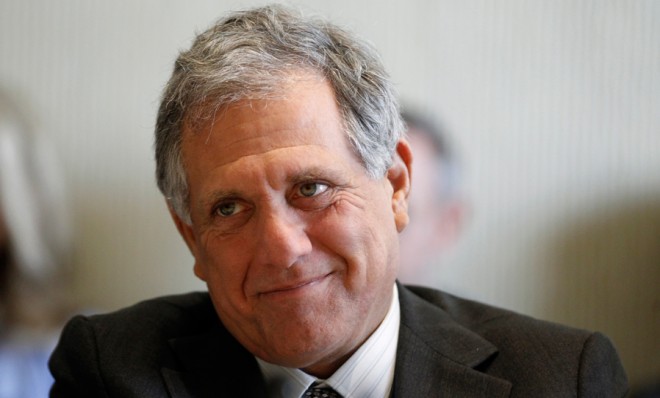CBS and Time Warner make up: 3 lessons from their bruising fight
Our long national nightmare is over

A free daily email with the biggest news stories of the day – and the best features from TheWeek.com
You are now subscribed
Your newsletter sign-up was successful
Everyone breathe a sigh of relief: CBS and Time Warner Cable have reached a deal just in time for football.
Late Monday, the two companies announced a truce to end the contentious public squabble that left 3 million customers in New York, Dallas, and Los Angeles without CBS for a full month. Less than an hour later, the Tiffany Network was back up and running.
The fight was over how much TWC would pay for the right to retransmit CBS content to its cable subscribers. Reports said CBS was asking for $2 per customer, up from $1. Time Warner, feeling the burn from a wide array of new competition — ranging from Verizon's FiOS to Netflix's original programming — said the 100 percent increase was outlandish and unfair.
The Week
Escape your echo chamber. Get the facts behind the news, plus analysis from multiple perspectives.

Sign up for The Week's Free Newsletters
From our morning news briefing to a weekly Good News Newsletter, get the best of The Week delivered directly to your inbox.
From our morning news briefing to a weekly Good News Newsletter, get the best of The Week delivered directly to your inbox.
Though neither side has provided specifics on the agreement, both CBS's Leslie Moonves and TWC's Glenn Britt have hinted that CBS walked away victorious.
"We certainly didn't get everything we wanted," Britt said, adding that this might be a good time for Congress and the Federal Communications Commission "to reassess the 1992 retransmission consent rules," which he claims "are woefully out of date."
Moonves, meanwhile, said, "The final agreements with Time Warner Cable deliver to us all the value and terms that we sought in these discussions. We are receiving fair compensation for CBS content and we also have the ability to monetize our content going forward on all the new, developing platforms that are right now transforming the way people watch television."
The battle, exacerbated by big technological shifts in the TV business, provided a few takeaways.
A free daily email with the biggest news stories of the day – and the best features from TheWeek.com
1. Content is king
This isn't exactly news, but the outcome served as a clear reminder: It's hard to mess with the entity that controls the goods, which in this case was popular programming like the Big Bang Theory and 60 Minutes.
David Bank, a media analyst for RBC Capital Markets, told The New York Times, "With the content, especially the NFL and CBS being the No. 1 network in the ratings, you just have to believe they are going to win every time."
"[T]he settlement was ultimately a financial arrangement between two partners," says the Times, "one of which had content the other needed to satisfy its customers."
2. When media giants feud, customers are the pawns
After TWC shut off CBS and its cable channels, recommending that customers find the content online instead, CBS hit back by simply blocking online access to its shows for TWC's broadband Internet subscribers.
And even though customers were essentially pawns in the CBS-Time Warner fight, they shouldn't expect to see the blackout reflected in a reduced cable bill.
3. Football is president of the world
It's no coincidence that the two sides raised their white flags a week before CBS was scheduled to kick off its coverage of the new NFL season. Gizmodo's Brian Barrett says:
And why, you ask, after a month of neither side giving any quarter, have you finally been granted casual access to your beloved NCIS reruns? Probably in celebration of Labor Day, a selfless recognition on both sides that they were depriving joy from the working man for petty reasons not worth the spit they were signed with. Nah, kidding, it's because of money. The professional football season kicks off this Thursday, and no one wants to miss out those millions and millions of dollars of advertising revenue. [Gizmodo]
Margaret Hartmann at New York's Daily Intel agrees. While the end of the blackout "may feel like a miracle to people who couldn't figure out how to illegally download the Homeland premiere, it's actually another testament to the disturbing power of the NFL."
Carmel Lobello is the business editor at TheWeek.com. Previously, she was an editor at DeathandTaxesMag.com.
-
 The Olympic timekeepers keeping the Games on track
The Olympic timekeepers keeping the Games on trackUnder the Radar Swiss watchmaking giant Omega has been at the finish line of every Olympic Games for nearly 100 years
-
 Will increasing tensions with Iran boil over into war?
Will increasing tensions with Iran boil over into war?Today’s Big Question President Donald Trump has recently been threatening the country
-
 Corruption: The spy sheikh and the president
Corruption: The spy sheikh and the presidentFeature Trump is at the center of another scandal